Submitted:
24 August 2023
Posted:
25 August 2023
You are already at the latest version
Abstract
Keywords:
Introduction
Materials and Methods
Sampling Place and duration of the study:
Collection of the samples
Tissue digestion and microscopic inspection
Polymer identification
Results
Discussion
Author Contributions
Institutional Review Board Statement
Informed Consent Statement
Acknowledgements
Conflicts of Interest
Appendix A
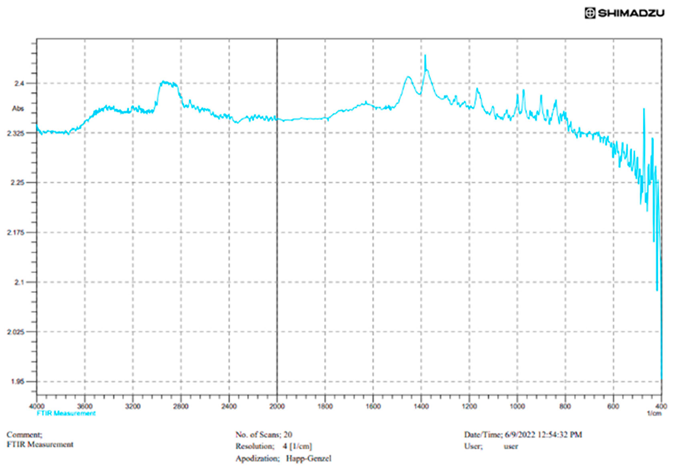
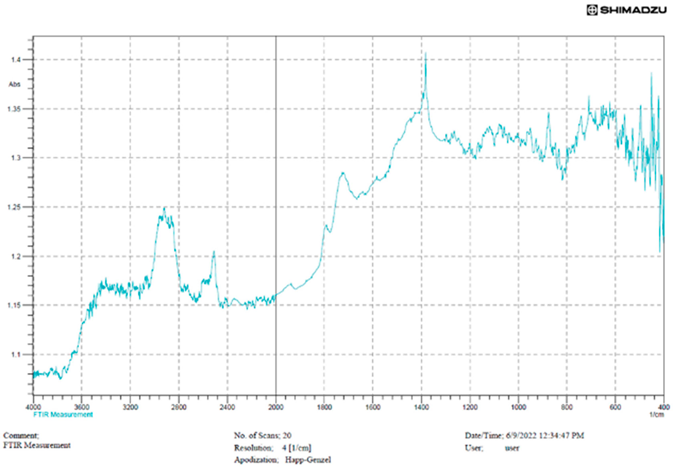
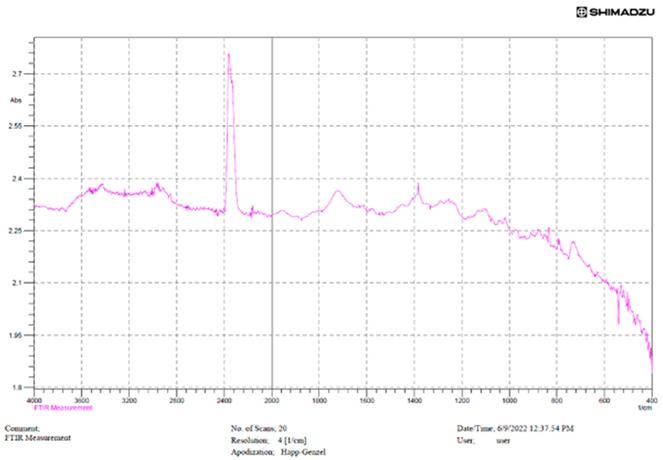
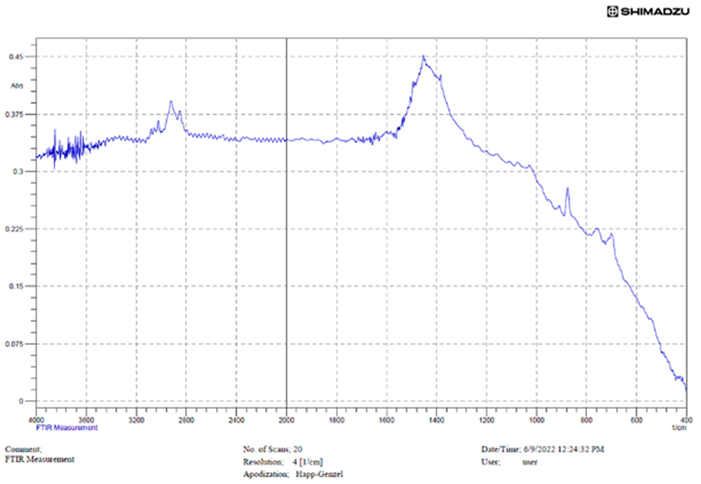
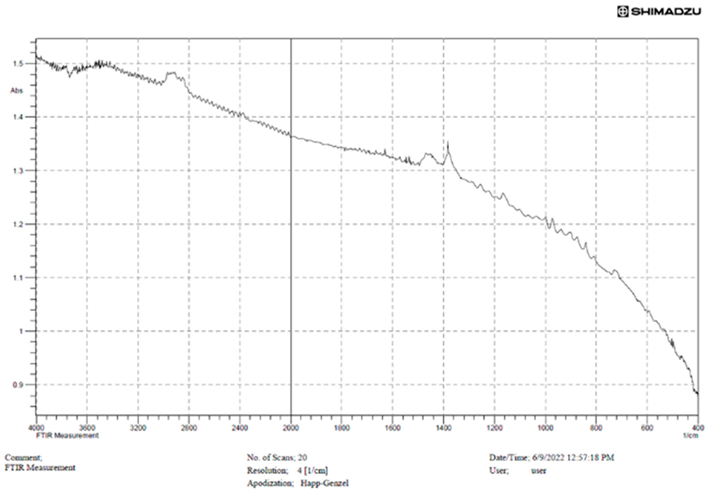
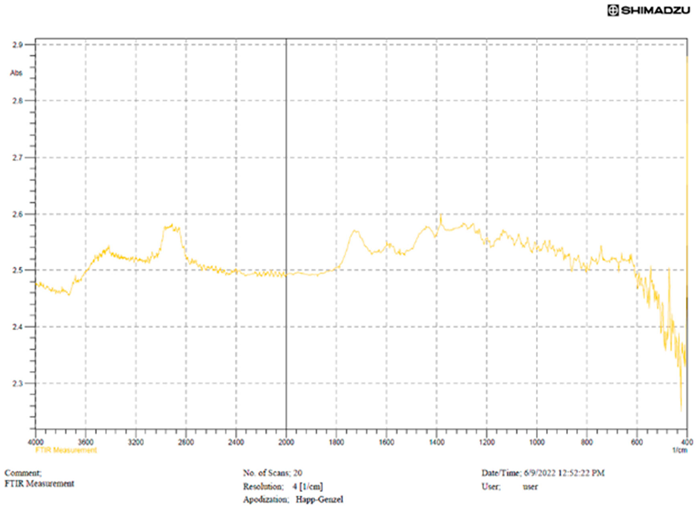
References
- Corsi, I., Bergami, E., Caruso, G.; Special issue plastics in polar regions. Environ. Int. 2021, 149, 106203 . [CrossRef]
- Herbort, A.F., Sturm, M.T., Fiedler, S., Abkai, G., Schuhen, K.; Alkoxysilyl induced agglomeration: a new approach for the sustainable removal of microplastic from aquatic systems. J. Polym. Environ. 2018, 26 (11), 4258–4270. [CrossRef]
- Jambeck, J.R., Geyer, R., Wilcox, C., Siegler, T.R., Perryman, M., Andrady, A., Narayan, R., Law, K.L.; Plastic waste inputs from land into the ocean. Marine pollution. 2015, 347 (6223), 768–771. PMID: 25678662. [CrossRef]
- Kumar, M., Chen, H., Sarsaiya, S., Qin, S., Liu, H., Awasthi, M.K., Kumar, S., Singh, L., Zhang, Z., Bolan, N.S., Pandey, A., Varjani, S., Taherzadeh, M.J.; Current research trends on micro- and nano-plastics as an emerging threat to global environment: a review. J. Hazard. Mater. 2021, 409, 124967 . [CrossRef]
- Frias, J.P.G.L., Nash, R.; Microplastics: finding a consensus on the definition.Mar. Pollut. Bull., 2019, 138, 145-147. [CrossRef]
- Zhang, K., Hamidian, A.H., Tubic, A., Zhang, Y., Fang, J.K.H., Wu, C., Lam, P.K.S.; Understanding plastic degradation and microplastic formation in the environment: a review.Environ. Pollut., 2021, 274 Article 116554.
- Plastics Europe, 2020. Plastics - The Facts 2020; An Analysis of European Plastics Production, Demand, and Waste Data.
- UNEP; Marine Plastic Debris and Microplastics – Global Lessons and Research to Inspire Action and Guide Policy Change. United Nations Environment Programme, Nairobi. 2016.
- De S’a, L.C., Luís, L.G., Guilhermino, L.; Effects of microplastics on juveniles of the common goby (Pomatoschistus microps): confusion with prey, reduction of the predatory performance and efficiency, and possible influence of developmental conditions. Environ. Pollut., 2015, 196, 359–362. [CrossRef]
- Anbumani, S., Kakkar, P.; Ecotoxicological effects of microplastics on biota: a review. Environ. Sci. Pollut. Res. 2018, 25 (15), 14373–14396. [CrossRef]
- Wang, J., Tan, Z., Peng, J., Qiu, Q., Li, M.; The behaviors of microplastics in the marine environment. Mar. Environ. Res. 2016, 113, 7–17. [CrossRef]
- Leslie, H., Velzen, M., Vethaak, A.; Microplastic survey of the dutch environment. In: Novel Data Set of Microplastics in North Sea Sediments, Treated Wastewater Effluents and Marine Biota. The Netherlands.Pehlivan, N., Gedik, K., 2021. Particle size-dependent biomolecular footprints of interactive microplastics in maize. Environ. Pollut. 2013, 277, 116772 . [CrossRef]
- Koelmans, A.A., Nor, N.H.M., Hermsen, E., Kooi, M., Mintenig, S.M., France, J.; Microplastics in freshwaters and drinking water: critical review and assessment of data quality. Water Res. 2019, 155, 410–422. [CrossRef]
- Eerkes-Medrano, D., Thompson, R.C., Aldridge, D.C.; Microplastics in freshwater systems: a review of the emerging threats, identification of knowledge gaps and prioritisation of research needs. Water Res. 2015, 75, 63–82. [CrossRef]
- BSC. Marine Litter in the Black Sea Region: A Review of the Problem. Black Sea Commission Publications, Istanbul-Turkey, 2007, 2007–1.
- Topcu, E.N., Ozturk, B.; Abundance and composition of solid waste materials on the western part of the Turkish Black Sea seabed. Aquat. Ecosyst. Health Manage. 2010, 13, 301–306. [CrossRef]
- BSC. Marine litter in the Black Sea region. In: The Commission on the Protection of the Black Sea Against Pollution. Black Sea Commission Publications, Istanbul- Turkey. 2009.
- Lechner, A., Keckeis, H., Lumesberger-Loisl, F., Zens, B., Krusch, R., Tritthart, M., Glas, M., Schludermann, E.; The Danube so colourful: a potpourri of plastic litter outnumbers fish larvae in Europe’s second largest river. Environ. Pollut. 2014, 188, 177–181. [CrossRef]
- Topçu, E.N., Tonay, A.M., Dede, A., Öztürk, A.A., Öztürk, B.; Origin and abundance of marine litter along sandy beaches of the turkish Western Black Sea coast.Mar. Environ. Res., 2013, 85 21-28. [CrossRef]
- Terzi, Y., Seyhan, K.; Seasonal and spatial variations of marine litter on the south- eastern Black Sea coast. Mar. Pollut. Bull., 2017, 120, 154-158. [CrossRef]
- Simeonova, A., Chuturkova, R., Yaneva, V.; Seasonal dynamics of marine litter along the bulgarian Black Sea coast. Mar. Pollut. Bull., 2017, 119, 110-118. [CrossRef]
- Oztekin A., Bat, L., Baki, O.G.; Beach litter pollution in Sinop sarikum lagoon coast of the southern Black Sea. Turk. J. Fish. Aquat. Sci., 2020, 20, 197-205. [CrossRef]
- Terzi, Y., Erüz, C., Özşeker, K.; Marine litter composition and sources on coasts of south-eastern Black Sea: a long-term case study. Waste Manag., 2020, 105, 139-147. [CrossRef]
- Erüz, C., Terzi, Y., Öztürk, R.Ç., Karakoç, F.T., Özşeker, K., Şahin, A., Ismail, N.P.; Spatial pattern and characteristics of the benthic marine litter in the southern Black Sea shelf. Mar. Pollut. Bull., 2022, 175 Article 113322. [CrossRef]
- Bowen L., L. Weiwenhui, L. Quan-Xing, F. Shijian, M. Cuizhu, C. Qiqing, S. Lei, J.C. Nicholas, S.; Huahong.Fish ingest microplastics unintentionally. Environ. Sci. Technol., 2021, 55 (15), 10471-10479. [CrossRef]
- Roch, S., Brinker, A.; Rapid and efficient method for the detection of microplastics in the gastrointestinal tract of fishes. Environ Sci Technol. 2017, 51(8):4522-4530. [Crossref].
- Ibryamova, S., Toschkova, S., Bachvarova, D., Lyatif, A., Stanachkova, E., Ivanov, R., Natchev, N., Ignatova-Ivanova, Ts. Assessment of the bioaccumulation of microplastics in the black sea mussel Mytilus Galloprovincialis L., 1819. Journal of IMAB - Annual Proceeding (Scientific Papers) 2022, 28 (4): 4676-4682. [CrossRef]
- Eryaşar, A. R., Gedik, K., Mutlu, T.; Ingestion of microplastics by commercial fish species from the southern Black Sea coast. Marine Pollution Bulletinр, 2022, 177, 113535. [CrossRef]
- Neves, D., Sobral, P., Ferreira, J.L., Pereira, T.; Ingestion of microplastics by commercial fish off the Portuguese coast. Mar. Pollut. Bull. 2015, 101, 119–126. [CrossRef]
- Güven, O., G¨okda˘g, K., Jovanovi´c, B., Kıdeys¸, A.E.; Microplastic litter composition of the turkish territorial waters of the Mediterranean Sea, and its occurrence in the gastrointestinal tract of fish. Environ. Pollut. 2017, 223, 286–294. [CrossRef]
- Gündo˘gdu, S., Çevik, C., Temiz Atas, N.; Occurrence of microplastics in the gastrointestinal tracts of some edible fish species along the Turkish coast. Turk. J. Zool. 2020, 44, 312–323. [CrossRef]
- Bellas, J., Martinez-Armental, J., Martinez-Camara, A., Besada, V., Martinez-Gomez, C.; Ingestion of microplastics by demersal fish from the Spanish Atlantic and Mediterranean coasts. Mar. Pollut. Bull. 2016, 109, 55–60. [CrossRef]
- Bessa, F., Barria, P., Neto, J.M., Frias, J.P.G.L., Otero, V., Sobral, P., Marques, J.C.; Occurrence of microplastics in commercial fish from a natural estuarine environment. Mar. Pollut. Bull. 2018, 128, 575–584. [CrossRef]
- Peters, C.A., Thomas, P.A., Rieper, K.B., Bratton, S.P.; Foraging preferences influence microplastic ingestion by six marine fish species from the Texas Gulf Coast. Mar. Pollut. Bull. 2017, 124, 82–88. [CrossRef]
- Wang, Q., Zhu, X., Hou, C., Wu, Y., Teng, J., Zhang, C., Tan, H., Shan, E., Zhang, W., Zhao, J.; Microplastic uptake in commercial fishes from the Bohai SeaChina. Chemosphere 2021, 263, 127962. [CrossRef]
- Woodall, L.C., Sanchez-Vidal, A., Canals, M., Paterson, G.L.J., Coppock, R., Sleight, V., Calafat, A., Rogers, A.D., Narayanaswamy, B.E., Thompson, R.C.; The deep sea is a major sink for microplastic debris. R. Soc. Open Sci. 2014, 1, 140317 . [CrossRef]
- Jabeen, K., Su, L., Li, J., Yang, D., Tong, C., Mu, J., Shi, H.; Microplastics and mesoplastics in fish from coastal and fresh waters of China. Environ. Pollut. 2017, 221, 141–149. [CrossRef]
- Wootton, N., Reis-Santos, P., Gillanders, B.M.; Microplastic in fish - a global synthesis. Rev. Fish Biol. Fish. 2021, 31 (4), 753–771. [CrossRef]
- Lusher, A.L., McHugh, M., Thompson, R.C.; Occurrence of microplastics in the gastrointestinal tract of pelagic and demersal fish from the English Channel. Mar. Pollut. Bull. 2013., 67, 94–99. [CrossRef]
- McGoran, A.R., Clark, P.F., Morritt, D.; Presence of microplastic in the digestive tracts of european flounder, Platichthys flesus, and European smelt, Osmerus eperlanus, from the river Thames. Environ. Pollut. 2017, 220, 744–751. [CrossRef]
- Hidalgo-Ruz, V., Gutow, L., Thompson, R.C., Thiel, M.; Microplastics in the marine environment: a review of the methods used for identification and quantification. Environ. Sci. Technol. 2012, 46, 3060–3075. [CrossRef]
- Ibryamova, S., Toschkova, S., Bachvarova, D. Ch., Lyatif , A., Stanachkova, E., Ivanov, R., Natchev, N., Ignatova-Ivanova, Ts.; Assessment of the bioaccumulation of microplastics in the black sea mussel Mytilus galloprovincialis L., 1819. Journal of IMAB - Annual Proceeding (Scientific Papers), 2022, 28 (4), 4676-4682. [CrossRef]
- Browne, M.A., Dissanayake, Awantha, Galloway, T.S., Lowe, D.M., Thompson, R.C.; Ingested microscopic plastic translocate to the circulatory system of the mussle, Mytilus edulis (L.). Environ. Sci. Technol. 2008, 42, 5026–5031. [CrossRef]
- Prokic, M.D., Radovanovic, T.B., Gavric, J.P., Faggio, C.; Ecotoxicological effects of microplastics: examination of biomarkers, current state and future perspectives. TrAC Trends Anal. Chem. 2019, 111, 37–46. [CrossRef]
- Jaafar, N., Azfaralariff, A., Musa, S.M., Mohamed, M., Yusoff, A.H., Lazim, A.M.; Occurrence, distribution and characteristics of microplastics in gastrointestinal tract and gills of commercial marine fish from Malaysia. Sci. Total Environ. 2021, 799, 149457 . [CrossRef]
- Sun, X., Li, Q., Shi, Y., Zhao, Y., Zheng, S., Liang, J., Liu, T., Tian, Z.;. Characteristics and retention of microplastics in the digestive tracts of fish from the Yellow Sea. Environ. Pollut. 2019, 249, 878–885. [CrossRef]






Disclaimer/Publisher’s Note: The statements, opinions and data contained in all publications are solely those of the individual author(s) and contributor(s) and not of MDPI and/or the editor(s). MDPI and/or the editor(s) disclaim responsibility for any injury to people or property resulting from any ideas, methods, instructions or products referred to in the content. |
© 2023 by the authors. Licensee MDPI, Basel, Switzerland. This article is an open access article distributed under the terms and conditions of the Creative Commons Attribution (CC BY) license (http://creativecommons.org/licenses/by/4.0/).




